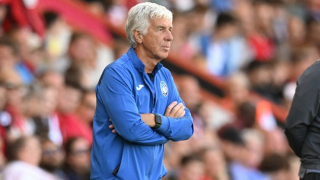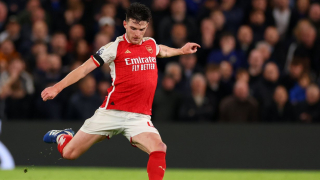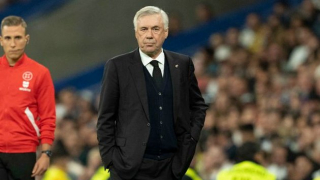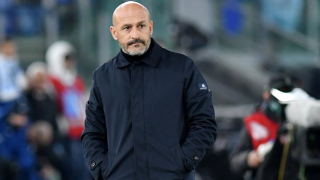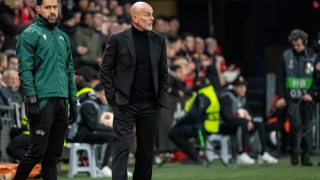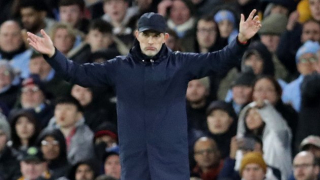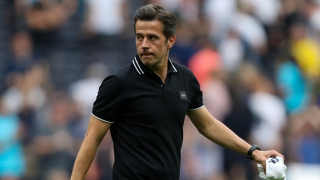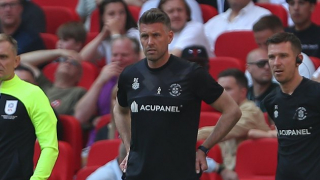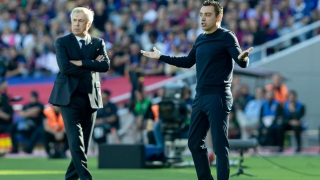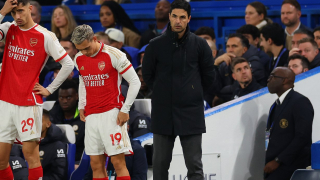By Greville Waterman
I had written a few books about Brentford FC - predominantly season reviews and histories, which were well received but frankly of minority interest. If you are going to spend up to a year researching and writing a book then you might as well do someezthing with potentially broader appeal that hopefully people will want to read.
I therefore looked for a footballer ideally with Brentford roots but who had also extended his career elsewhere, and Bob Booker was an obvious candidate.
His playing career lasted from the late 70s until 1993 and he then worked as a youth coach and assistant manager between 1994 until late 2009 so there were over thirty years' worth of activity to cover.
His background was also highly unusual. He had never won representative honours as a youngster and was more of an athlete than a footballer, finishing second in the 800 metres to Steve Ovett in the AAA Championships. He had no ambitions to become a footballer and was playing for Bedmond a local team when his manager, a landscape gardener bent the ear of one of his clients, Willis Hall, a Brentford director and talked him into giving Bob a trial.
The rest is history. Bob impressed as a tall and determined centre forward, trained for two days a week unpaid for several months while he finished his apprenticeship as an upholsterer and was then given a one-year contract by Bees manager Bill Dodgin.
Bob went from earning up to £200 per week on piecework – twice the national average wage – with a lifetime's guaranteed employment to an uncertain salary of £60 per week at Brentford. It took him eight years as a first team regular before he caught up where he was before he became a professional footballer.
Bob made his debut away at Watford – where he lived – in front of his bemused friends the weekend he turned professional and scored a hat trick against Hull City on his full home debut the following season.
Through a combination of talent, hard work, determination and dedication he made himself into a professional footballer despite never serving an apprenticeship and he became a valued and versatile jack-of-all-trades who wore every shirt for Brentford apart from the goalkeeper's.
The hat trick brought about unwanted and unreasonable expectations and Bob was booed unmercifully but he fought back and earned the grudging support and appreciation of Brentford fans.
He overcame a serious ACL injury and a year out to force his way back into the reckoning but he was lacking in fitness and confidence and contemplating retirement when, despite his dodgy knee, Dave Bassett signed him out of the blue to bolster Sheffield United's promotion challenge in 1988 and replace an injured player in Simon Webster.
Bob went from a smallish, homely club in Brentford where mid table mediocrity was the norm to the relentless pressure of playing for a big name club in Sheffield United.
It took time to settle down and again, Bob was the victim of vituperative abuse when his early performances clearly demonstrated his lack of fitness and sharpness – but he fought back, worked hard, engaged with the supporters and community and became a massive local hero as he played a major role in Sheffield United's rise from Division Three to the First Division in successive seasons and Bob captained them to promotion.
The fairytale continued with Bob playing a prominent role in the top division, where he made his debut aged 32, and he scored the winning goal at QPR that ensured the Blades's survival.
Bob saw out his career at Brentford where he had left in 1988 as one of their lowest paid players and returned, three years later as one of their top earners.
Once his knee finally gave up on him Bob suffered the trauma of how to cope without football before the chance came for him to enter the second phase of his career as a youth coach at Brentford before he was taken to Brighton by Micky Adams and, highly unusually, worked as the assistant to six different managers including Adams, Peter Taylor, Steve Coppell, Mark McGhee and Russell Slade, becoming a well loved and highly respected member of the coaching staff who managed to adapt to the varying needs of each manager.
I hope readers find Bob's amazing story as fascinating, original and unlikely as I did.
It could never happen today. He would probably have been scouted at the age of eight and joined an academy. If so he would have run the risk of losing the boundless enthusiasm that was such a crucial part of his makeup. Working in a factory – again something that is almost unknown for a footballer today, gave him the discipline and hunger that he needed to help him succeed as a footballer.
Bob is unique and a one-off who is still revered at the three clubs he served and his career deserves recognition and celebration. I just hope that I have done him justice.


